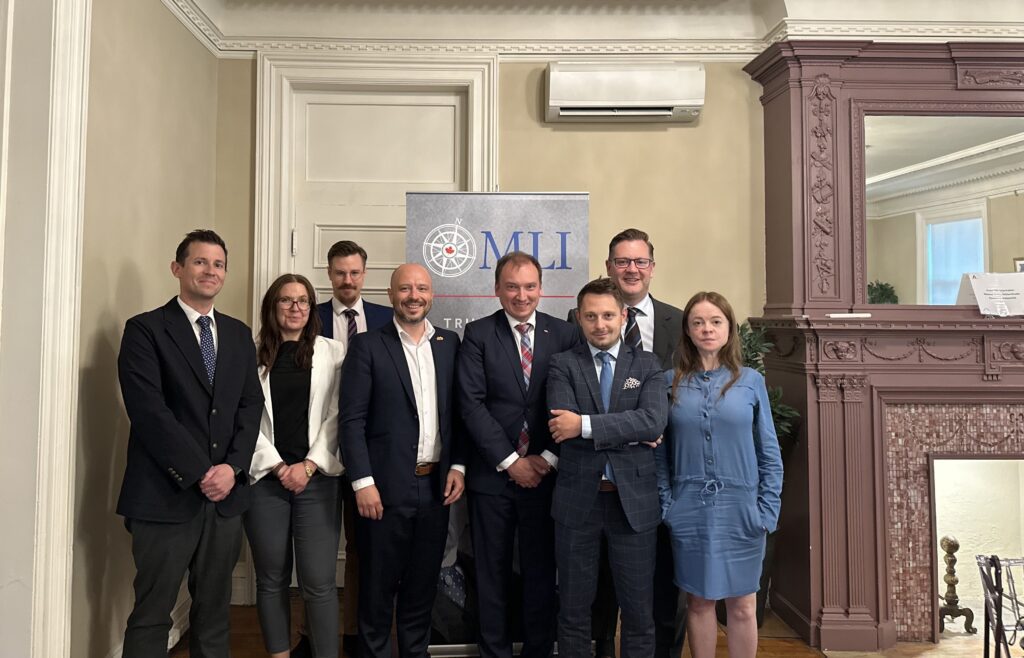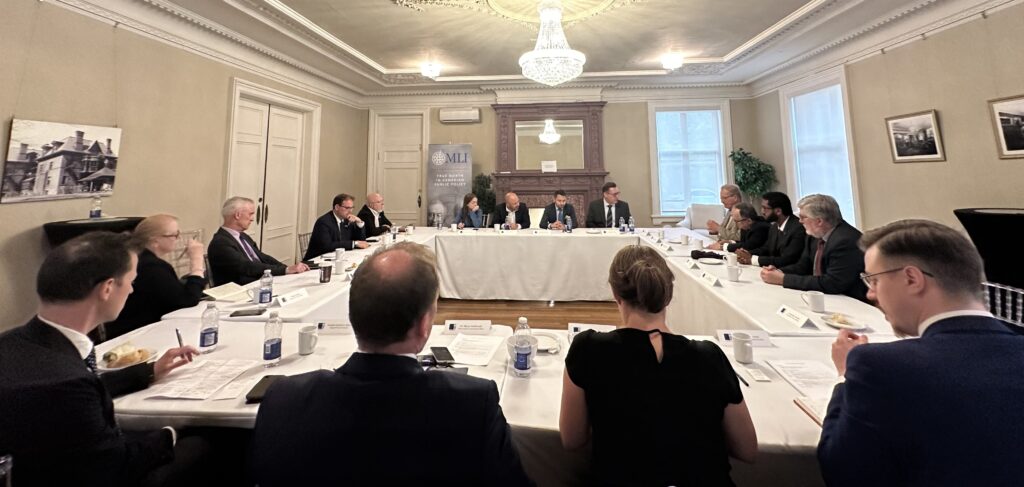
On June 6, the Polish Institute of International Affairs (PISM) and the Macdonald-Laurier Institute (MLI) jointly hosted a closed-door roundtable discussion at Kildare House, focusing on Canada-Poland relations. The event brought together experts and policymakers to explore critical issues impacting transatlantic relationships and current global security dynamics.
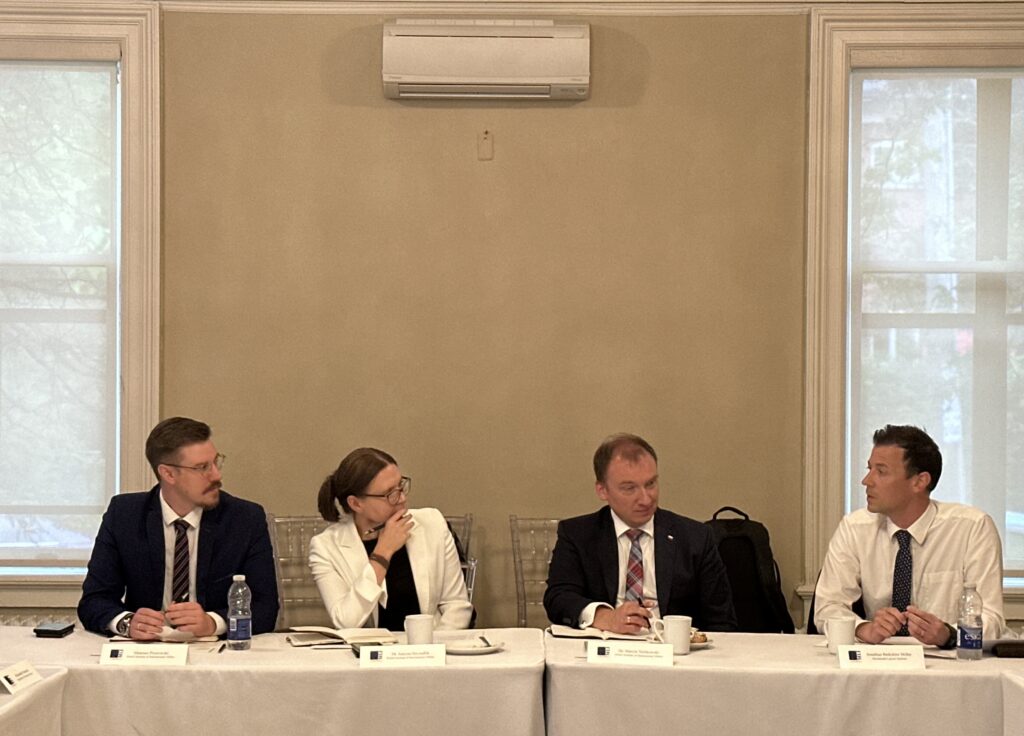
The dialogue commenced with welcome remarks from Dr. Marcin Terlikowski of PISM, Dr. Balkan Devlen of MLI, and Ambassador of Poland, HE Witold Dzielski.
Panel 1: The Revisionist China and the Defence of Rule-Based International Order
The first panel addressed the dual threat posed by China and Russia. Panelists outlined the evolving perception of China as a security challenge in Europe, particularly in light of its support for Russia amid the Ukraine conflict. Stressing the interconnectedness of global security threats, including North Korea’s relations with Russia and China, the discussion focused on Poland’s cautious approach towards China.
Other key points from the discussion included:
- The need for a unified European stance on China;
- The potential for Canadian leadership in signaling commitment to global security;
- And the implications of China’s actions in the Indo-Pacific on transatlantic relations.
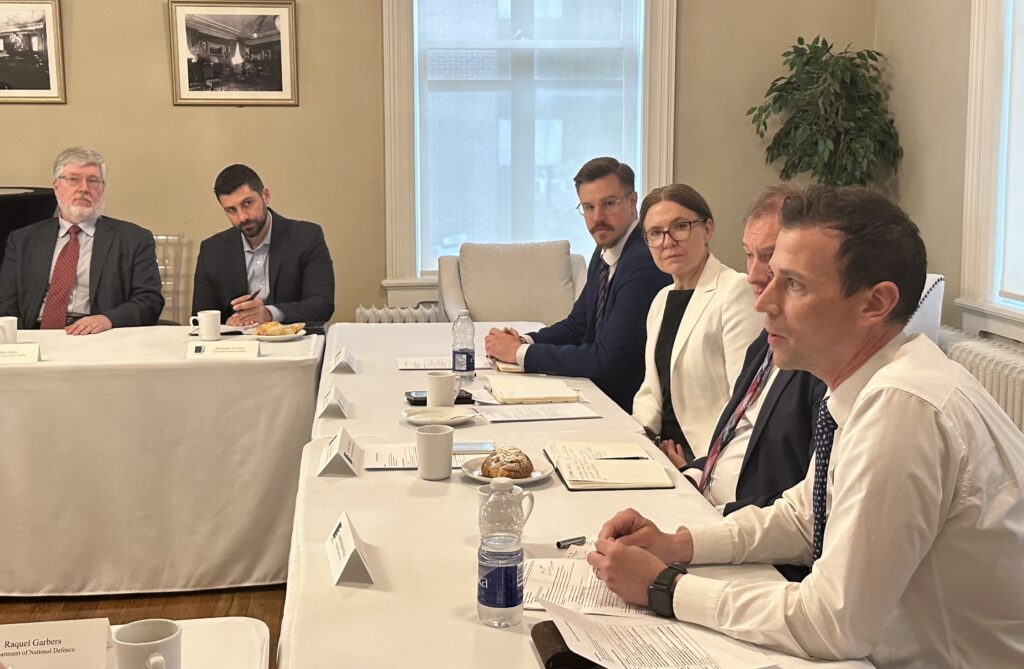
Panel 2: Towards a Long War in Europe: Stakes for the Transatlantic Bond and the Canada-Poland Relationship
The second panel focused on the ongoing conflict in Ukraine and its broader implications. Panelists emphasized the persistent threat posed by Russia and highlighted the strategic importance of long-term support for Ukraine.
Panelists stressed:
- The necessity of a robust NATO presence in Central and Eastern Europe;
- The strategic importance of Ukraine’s resources and their implications for European security;
- And the imperative for Canada to bolster its Arctic infrastructure in response to Russian activities.
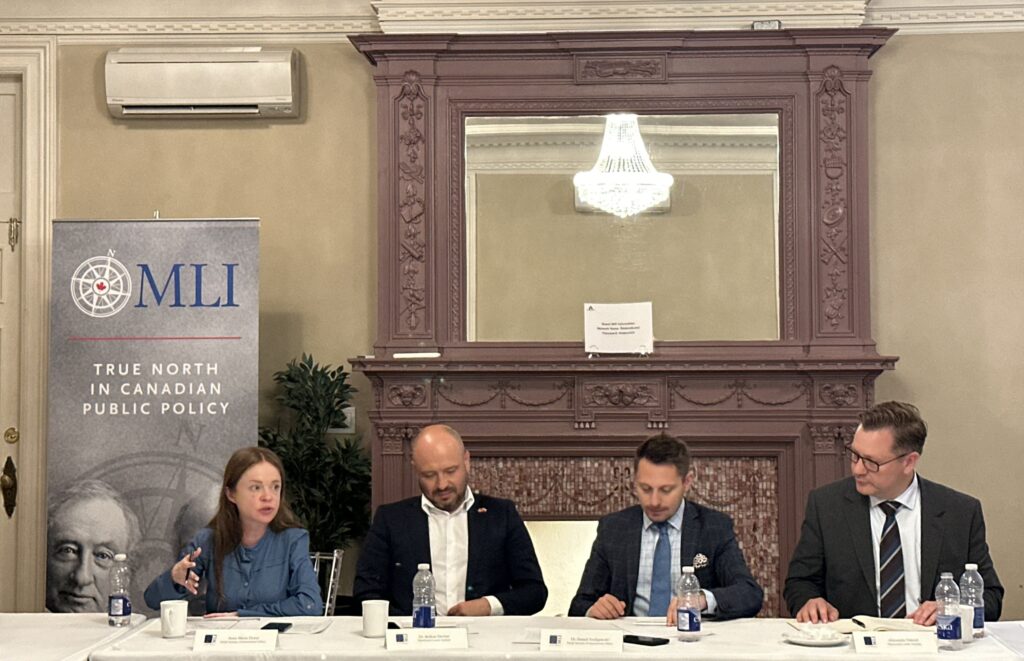
The event concluded following an open discussion and remarks from panelists reiterating the need for continued transatlantic cooperation and the importance of a proactive approach to security challenges. They stressed the urgency of supporting Ukraine and the potential geopolitical shifts under different future U.S. administrations.
